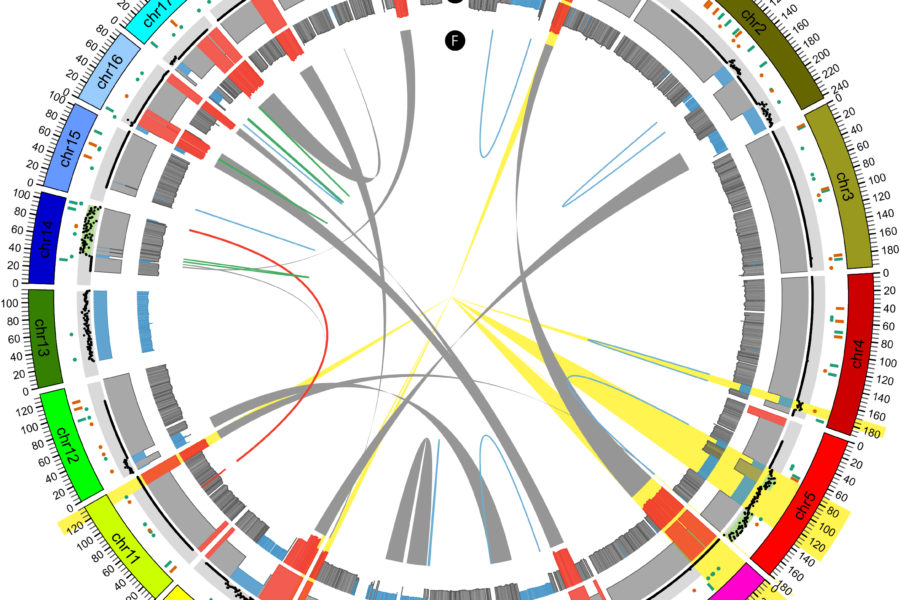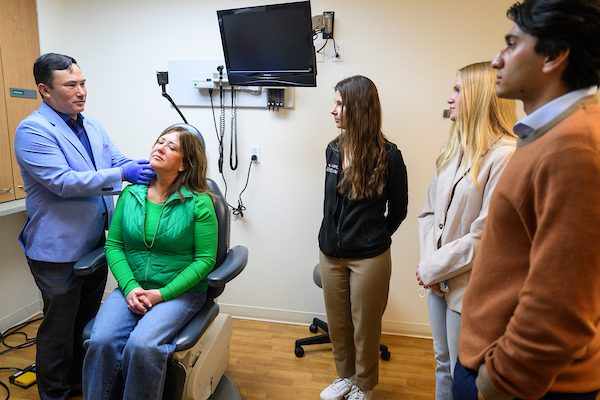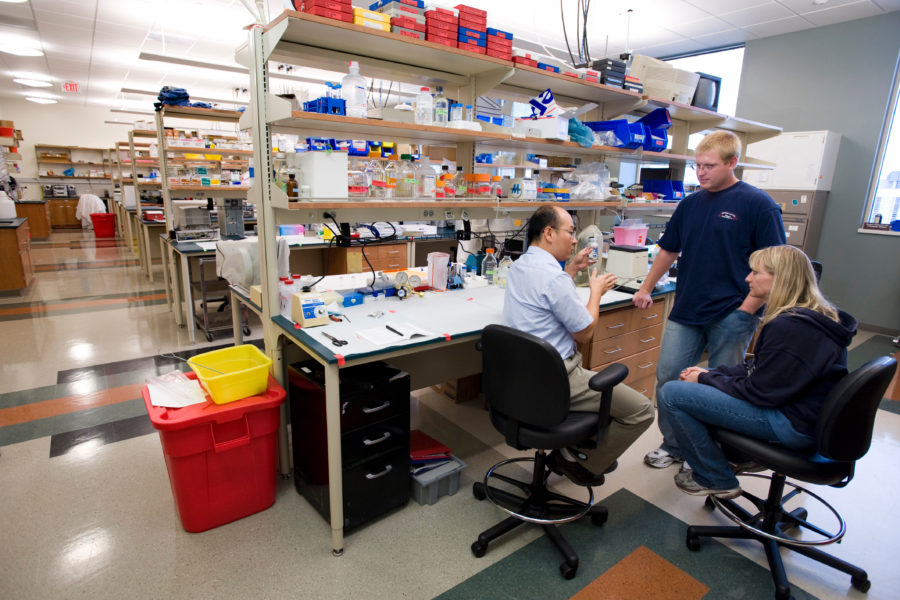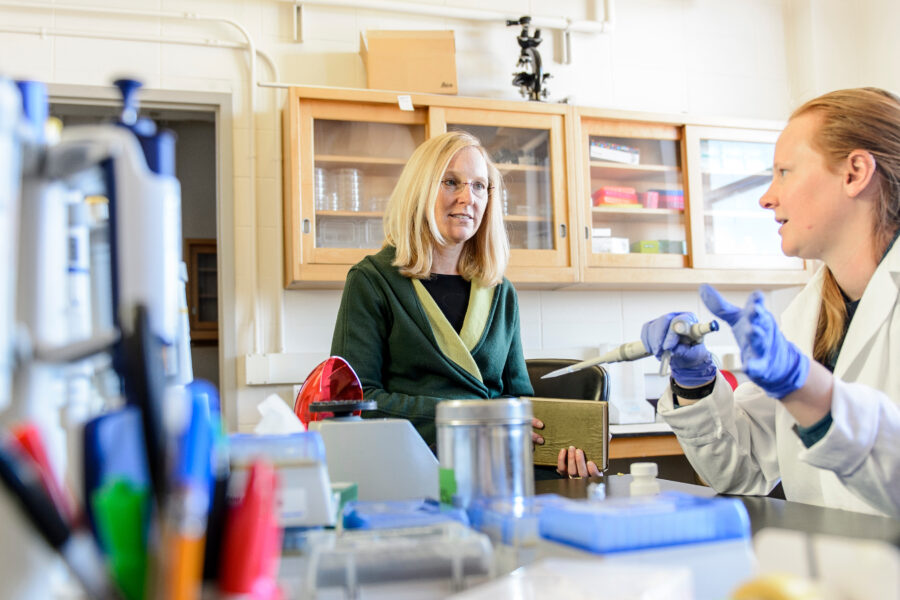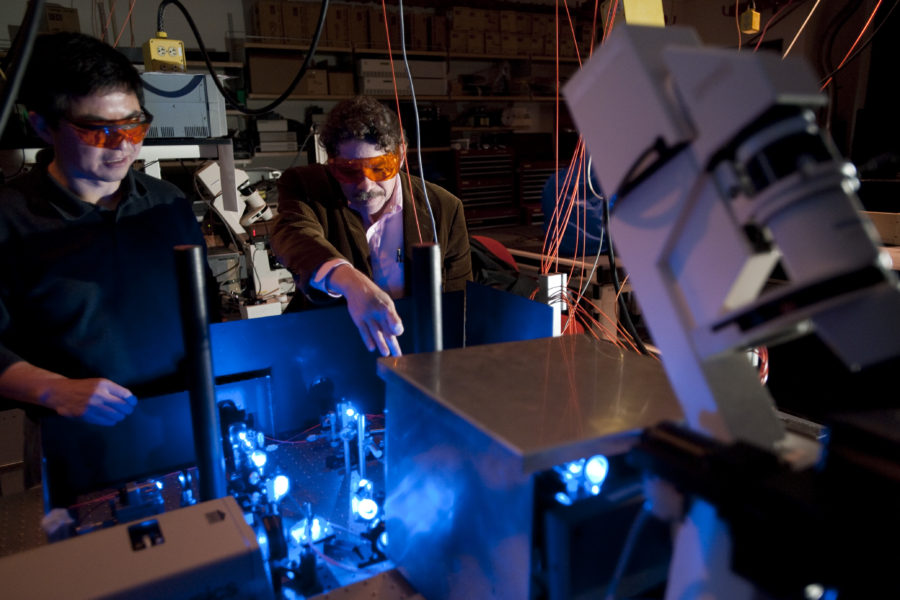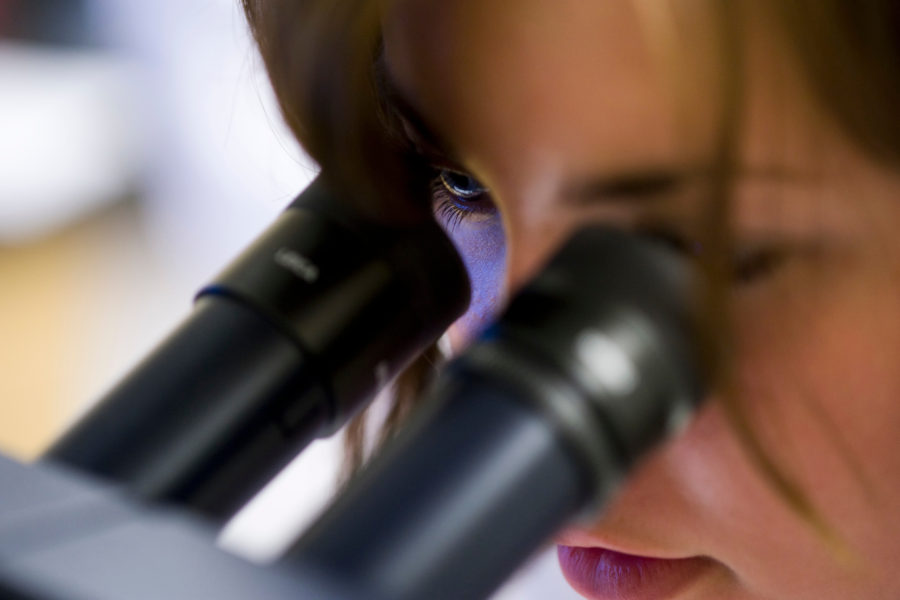The scientific mission of University of Wisconsin Carbone Cancer Center (UWCCC) is organized around six Scientific Programs. UWCCC Programs encompass laboratory research, clinical research, population sciences and advanced research training.
Cancer Genetic & Epigenetic Mechanisms (GEM)
The Genetic and Epigenetic Mechanisms (GEM) pursues basic and translational research to discover novel cancer genetic and epigenetic mechanisms, to translate mechanistic insights derived principally from mouse models and primary human cancer samples to human cancer, and to leverage the mechanistic insights to advance cancer diagnosis and treatment.
Cancer Prevention & Control
The UW Carbone Cancer Center (UWCCC) Cancer Prevention and Control (CPC) Program’s mission is to identify effective approaches to reduce the burden of cancer for patients, their families, and communities through improved prevention, early detection, and survival.
Developmental Therapeutics
The mission of the UW Carbone Cancer Center (UWCCC) Developmental Therapeutics (DT) Program is to discover new targets and therapeutic agents, translate and advance these discoveries through clinical trials and use information and resources from these clinical trials to understand mechanisms of response and resistance toward potentially superior therapeutic approaches.
Human Cancer Virology (VR)
To date, specific human tumor viruses have been causally associated with at least 15-20% of all human cancers and are widely suspected to contribute to additional cancers. Recent research in our program and elsewhere further shows that, for many or most virus-associated cancers, viral gene functions are required both for tumor development and also for continued survival of malignant cells in the final tumor.
Imaging & Radiation Sciences (IR)
The Imaging and Radiation Sciences (IR) Program pursues basic, translational, and clinical research involving ionizing and non-ionizing radiation in the diagnosis, staging, and treatment of cancer. The IR program has a strongly integrated scope in three major areas: Imaging Sciences, Radiation Sciences, and Imaging/Therapy Synergies.
Tumor Microenvironment
The Tumor Microenvironment (TM) Program at UW-Madison capitalizes on the involvement of many outstanding investigators whose research is focused on cell-ECM interactions, ECM structure and function, tumor cell migration and invasion, cell-cell adhesion, paracrine signaling between tumor and stromal cells, immune cell trafficking into tumors, tumor angiogenesis, metabolism, and development of in vitro models.
